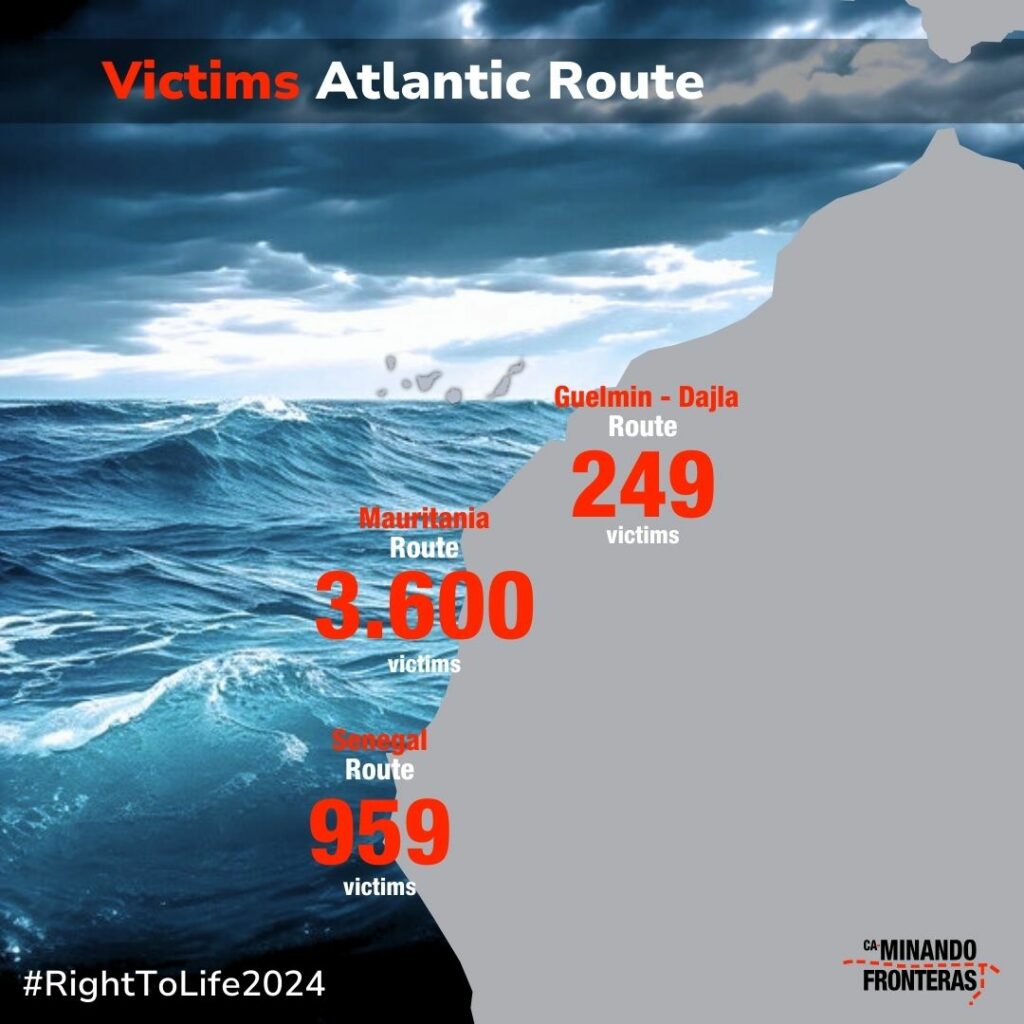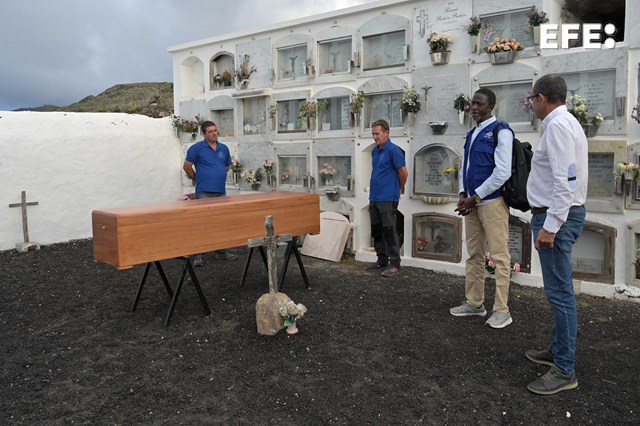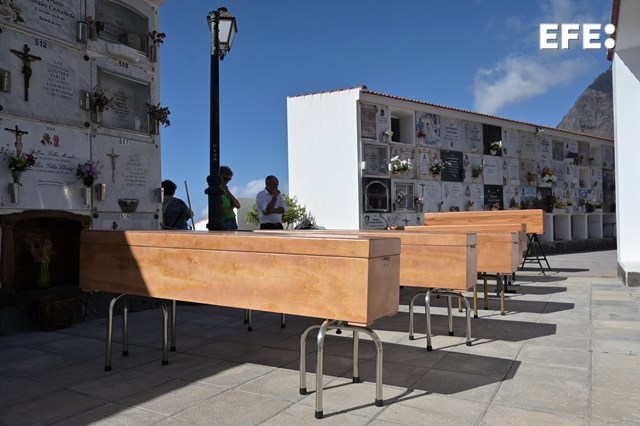In the early hours of Saturday, September 28th, Caminando Fronteras received the first calls from relatives alerting us about a cayuco drifting off the coast of El Hierro. According to information provided by survivors and relatives, the boat had left Mauritania with 90 people on board coming from Mali, Senegal, and Mauritania. The boat’s engine stopped when the island’s lights were already visible.

Caminando Fronteras immediately notified the rescue services, who came to the rescue and were able to locate the boat. However, hours later, it was confirmed that only 27 people had survived; the rest of the 63 people died, resulting in the most tragedy on the Canary Coasts in the last 30 years. So far, only nine bodies have been recovered.

Photo: Gelmert Finol (EFE)
Institutional racism: a reality we denounce
In tragedies with multiple victims such as this one, there are protocols and resources to attend to both the survivors and the relatives of the deceased. Unfortunately, when the victims are migrants, these protocols are not applied. This situation shows the institutional racism that Caminando Fronteras has been denouncing in recent years in border territories.
Assistance and justice mechanisms for victims and their families
The Spanish State must implement the following mechanisms to guarantee the rights of victims and their families:
- Independent research.
When an accident of this magnitude occurs, an independent investigation must be carried out to clarify the causes. This is a fundamental right for the families and the victims themselves.
- Do not bury the bodies until family members have been able to identify them.
The bodies mustn’t be buried before family members can identify them. Currently, Caminando Fronteras is working to find relatives who can identify the bodies with all the guarantees. Still, this effort will be in vain if the authorities decide to bury the bodies immediately. We understand that there are insufficient means to store the bodies in areas such as El Hierro, as has happened previously with Ceuta and Melilla. Still, in exceptional circumstances such as these, they could be moved to other places to give the families time to identify and decide on the burial of their loved ones.
- Facilitate mechanisms so family members can carry out the necessary procedures to identify the victims.
We demand that the mechanisms provided for in the regulations be activated, even if they are only implemented exceptionally and because of pressure from civil society, including:
- Issue humanitarian visas so family members can travel from their countries of origin to the Canary Islands to assist in identifying the bodies.
- Allow the delivery of DNA samples to Spanish embassies so that family members who cannot travel can also participate in the identification.

Photo: Gelmert Finol (EFE)
The importance of guaranteeing the rights of families
In the aftermath of the tragedy, it is necessary to provide the means to continue recovering the maximum number of bodies. In addition, mechanisms must be provided to assist families and help the professionals in charge of identifying the deceased. Families cannot be subjected to a process of re-victimization. It is essential to guarantee them access to the truth, allowing them to identify and recover the bodies of their loved ones to heal their wounds and mourn them with dignity.
Caminando Fronteras will continue to fight for the rights of migrants, denouncing institutional racism and demanding compliance with the protocols of justice and humanity that apply in these tragic circumstances.